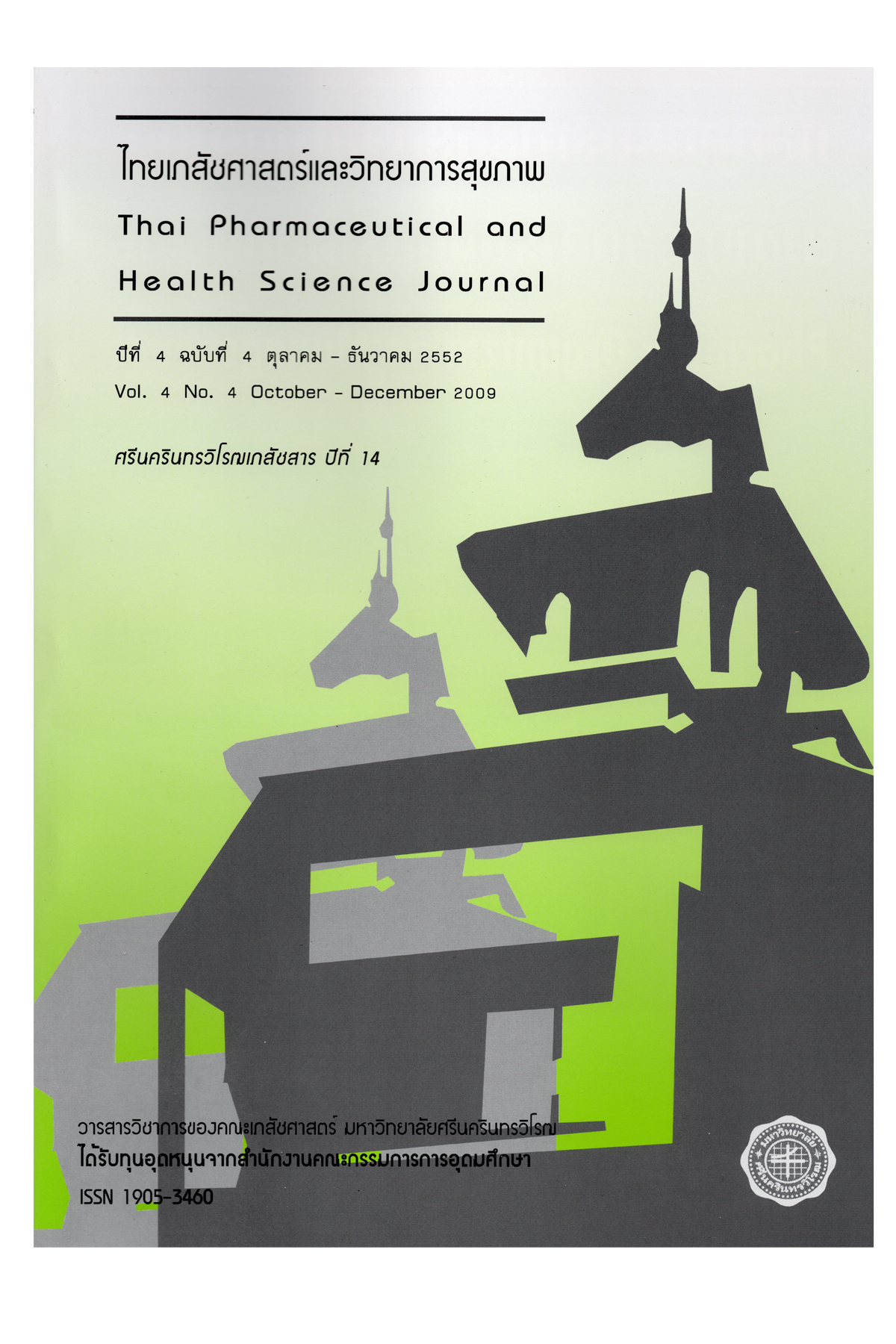Physicochemical and Microbiological Stability of Phenytoin Sodium Extemporaneous Suspension
Abstract
ABSTRACTObjective: To study the physicochemical and microbiological stability of phenytoin sodium extemporaneous suspension. Methods: Theextemporaneous suspension was prepared from the prompt release capsules of phenytoin sodium (100 mg/capsule). Four capsuleswere uncapped and the granules were ground into fine powders using a mortar and pestle. The powders were dispersed in sugar-freesuspension structured vehicle to achieve the concentration of 10 mg/mL. The suspensions were stored in glass and polyethylene plasticbottles and kept at 4, 25, and 40 ºC. The percent initial drug remaining, pH, sedimentation volume, viscosity, X-ray-powderdiffractometry and microbial stability were evaluated. Results: The percent phenytoin sodium concentration remained above 90% ofinitial concentration up to 56 days at all temperatures. The pH of suspensions were rather constant in both glass and polyethylenecontainers. The sedimentation volumes were 0.39 - 0.41 and redispersibilities were 3.3 - 3.5 throughout the study. The rheology ofprepared suspension exhibited a shear-thining system. The X-ray powder diffractogram showed that sediment of phenytoin sodium insugar-free suspension structured vehicle was in free acid form and no change in polymorphic form was observed after storage at 25 ºCfor 56 days. Conclusion: The extemporaneous suspension was chemically stable up to 56 days at 4, 25, and 40 ºC. The preparedsuspension met USP specification in microbial examination of nonsterile product after storage at 25 ºC for 56 days.Keywords: extemporaneous, phenytoin, stabilitDownloads
Download data is not yet available.
Downloads
Published
2009-10-07
Issue
Section
Original Research Article - นิพนธ์ต้นฉบับ
License
ลิขสิทธิ์ (Copyright)
ต้นฉบับที่ได้รับการตีพิมพ์ในวารสารนี้ถือเป็นสิทธิ์ของไทยเภสัชศาสตร์และวิทยาการสุขภาพ การนำข้อความใด ๆ ซึ่งเป็นส่วนหนึ่งหรือทั้งหมดของต้นฉบับไปตีพิมพ์ใหม่จะต้องได้รับอนุญาตจากเจ้าของต้นฉบับและวารสารก่อน
ความรับผิดชอบ (Responsibility)
ผลการวิจัยและความคิดเห็นที่ปรากฏในบทความเป็นความรับผิดชอบของผู้นิพนธ์ ทั้งนี้ไม่รวมความผิดพลาดอันเกิดจากเทคนิคการพิมพ์




